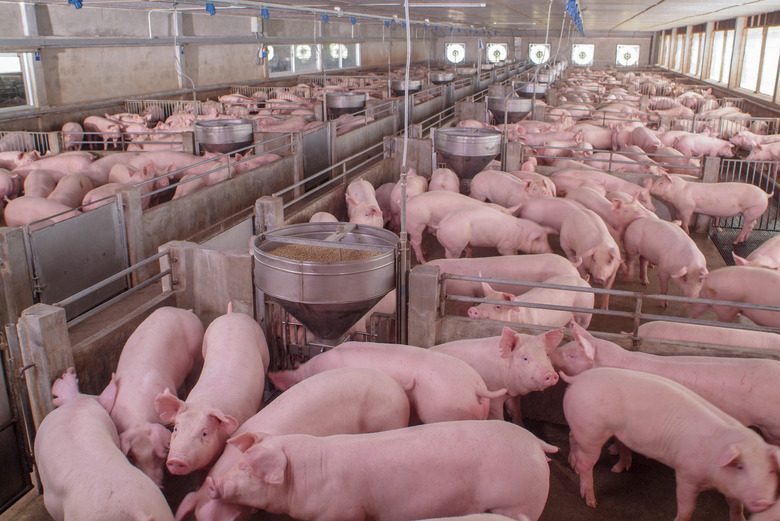Everything You Need To Know About The Contagion That's Killing Millions Of Pigs
We're undergoing one of the worst animal virus outbreaks in history, and it looks like it's only getting worse.
Pigs across China are dying of African swine fever, a super contagious and deadly virus that affects pigs and wild boars. So far, it has mostly killed pigs in China and Vietnam, although the virus has spread to countries including Mongolia, Hong Kong, Taiwan, Laos, Cambodia and Russia.
It's easy to spot infected pigs. They often get fevers, skin abnormalities, vomit or get diarrhea. Unfortunately, though, there's no cure for the disease.
There’s Really Nothing They Can Do to Stop This?
There's Really Nothing They Can Do to Stop This?
Officials are trying their hardest, but stopping the spread of African swine fever is incredibly difficult. It's highly contagious. That's partly because there are many simple ways to spread the disease. It travels easily on things like vehicles, clothing and people, and can also be spread through contaminated food that the pigs eat, or through tick bites.
Additionally, there is no vaccine or treatment for the virus. So, right now, the only way to truly stop the spread is to kill pigs, a process known as culling. Most reports estimate that farmers have culled more than 1 million pigs in China alone, which has been devastating to smaller farmers who were forced to get rid of their entire herds. It's estimated that the disease may affect as many as 200 million pigs before the outbreak is over.
Am I Going to Die of African Swine Fever?
Am I Going to Die of African Swine Fever?
No! Not even if you eat a bacon-wrapped pork chop for dinner tonight. African swine fever only affects members of the swine family, and is not considered a public health risk.
But the millions of dead pigs are affecting human life in ways other than contamination, mainly by upending the global food supply system. The price of pork is skyrocketing, thanks to the low supply of meat. Some economists estimate that prices could rise by as much as 70%.
Higher prices are bad news for the people who rely on pork as a protein to feed their families. Prices on other meats could rise, too. If the outbreak continues and more people must turn to beef and chicken, those supplies could also lower, making prices increase. That could be good news for farmers, but bad news for anyone grocery shopping on a budget.
The outbreak is hitting China the hardest, which is unfortunate, since it is the leading global consumer of pork, with the country responsible for eating more than half the world's pork. But China is also home to about 60% of the world's pigs, making them a leading supplier of pork, too. If the outbreak goes on long enough, it could mean your carnitas burrito from Chipotle will be a little more expensive.
Cite This Article
MLA
Dragani, Rachelle. "Everything You Need To Know About The Contagion That's Killing Millions Of Pigs" sciencing.com, https://www.sciencing.com/everything-you-need-to-know-about-the-contagion-thats-killing-millions-of-pigs-13719836/. 24 June 2019.
APA
Dragani, Rachelle. (2019, June 24). Everything You Need To Know About The Contagion That's Killing Millions Of Pigs. sciencing.com. Retrieved from https://www.sciencing.com/everything-you-need-to-know-about-the-contagion-thats-killing-millions-of-pigs-13719836/
Chicago
Dragani, Rachelle. Everything You Need To Know About The Contagion That's Killing Millions Of Pigs last modified March 24, 2022. https://www.sciencing.com/everything-you-need-to-know-about-the-contagion-thats-killing-millions-of-pigs-13719836/
